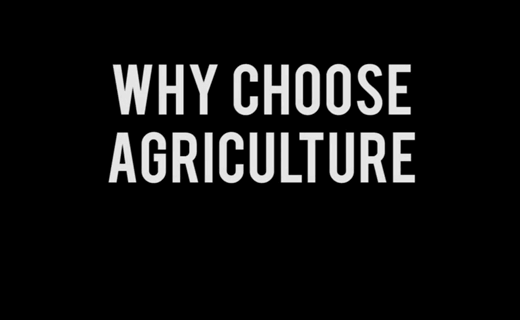- Candidates
- Login
- Set Up Account
- Create a Job Alert
- Search Tools
- Resources
- Employers

Most business schools recognize that teaching MBA students is more of a challenge than ever; not only because students expect more – they do, and they should. Working to keep up with a rapidly changing business climate, and to keep curriculums current, many business schools around the country have come up with novel programs and courses to demonstrate their ability to adjust to an increasingly diverse and competitive business education landscape that brings with it a shifting knowledge base that seems to evolve with every new semester. The food and agribusiness space is certainly not immune to these systemic changes, and the University of Guelph, known as Canada’s Food University, has an MBA program that captures the essence of what makes agribusiness a fascinating field in today’s global economy.

The proverbial “new normal” in agriculture and food present a number of fascinating issues to contend with: designing comprehensive strategies in the field that are built to cope withclimate change, economic trends, subsidies, currency wars, ever changing federal regulations on food packaging, labelling and safety and trade negotiations, among others.None of these factors can ever be controlled by corporations, insofar as they create tremendous volatility in the marketplace, rendering predictability an uncommon commodity in decision-making. Obviously, all choices in this field have always been inherently multidimensional, but the erratic macro-environment of the field has made it more challenging to remain strategically focused in agribusiness.
The politics of food is also at the forefront of agribusiness. Food, agriculture and policy have never been mutually exclusive, and companies are now compelled to appreciate how one variable can essentially have significant effects on others, while worrying about the next quarter. More consumers are now eating with a conscience, and looking for fair trade food products, organics and local foods. The ethical treatment of animals has also caught the attention of executives in the field. To complicate things further, the global food security agenda is also exercising some pressure on modern food systems. While more than 800 million people around the world suffer from hunger, industrialized countries waste more than 150 kilos of food per capita yearly, creating a deeply problematic gap. The objective of keeping input costs down and profit margins up is no longer enough to deal with systemic challenges. In food production, we have now entered the era of sound partnerships, efficient networks and global outreach.
Keeping all of this in mind, the University of Guelph’s MBA program has not only made significant changes in content to remain relevant, but has also pushed the envelope on delivery. The MBA’s capstone course is focused on the boardroom: literally. Students are asked to work in teams, assigned by the instructor, and compete against other teams as part of the MBA’s Boardroom Challenge in a real world application of their developing skills. After spending five intensive days understanding and deconstructing one company’s business model, MBA students are asked to present their recommendations to a panel of executives.
In academia, such a pedagogical approach is called a live case study, which is widely used in MBA programs around the world. What’s unique about Guelph’s program is that students are asked to compete against each other for potential scholarships. Moreover, students need to show their mastery in business concepts, while making business sense in real time. This process forces MBA students to excel beyond academic expectations, so executives can fully appreciate the practical merits of what the students are suggesting.
This capstone course is delivered every May. In 2013, our corporate partner is renowned food distributor Longos Foods. Even though Longos is solely established in Ontario, its market strategy as a food retailer is unique. In 2004, Longos bought Grocery Gateway, and since then, the company has steadily become the largest food e-tailer in the country, with designs on expanding further. Moving forward, with new demographics forces at play, many expect food retailing will need to change and embrace new models. For Longos, the classroom is an ideal forum to share ideas and to challenge preconceived notions around food distribution. Executives from the company will meet and work closely with students from the MBA program, and a good portion of the course is delivered physically at the company’s headquarters. For students, this is an opportunity to directly influence corporate strategies. Guelph’s approach to the live case study brings the concept of experiential learning to a new level.
Make no mistake, however. This course is not just about competing, although competition is an essential concept MBA students in agribusiness need to be comfortable with. The live case study is also about sharing information, and understanding the broader picture of agribusiness. Throughout the week, students are asked to share sensitive data amongst themselves and to support each other, even though they are in competition. The “new normal” in food and agriculture will demand more “coopetition”, a mix between cooperation and competition, between stakeholders, and entails that corporations will need to share data and build strategies set on converging interests. While it is quite unnatural for corporations to conduct business in this manner, sustainable methods in agribusiness in the future will require such a paradigm shift. To embrace this major adjustment in food business, there is no better place than in a MBA classroom in Guelph, in partnership with a company dealing with the complexities of global food systems.
For more information about the online agricultural Masters of Business Administration (MBA) program visit www.uoguelph.ca/business/mba